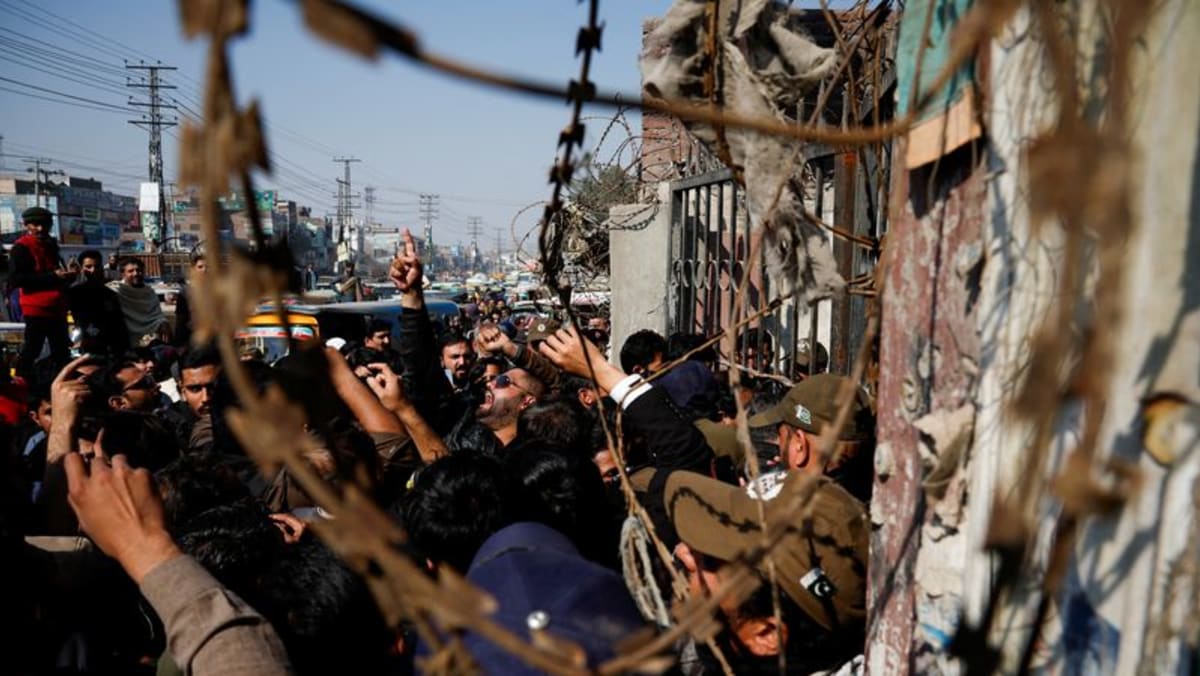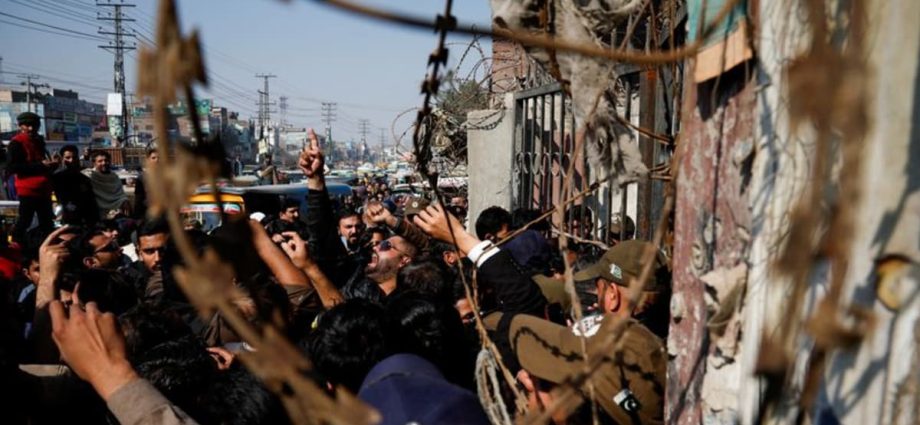
CHALLENGES FOR COALITION
“A timely announcement of the results, leading to a smooth formation of a new government, will reduce policy and political uncertainty,” Moody’s Investors Service said. “This is crucial for the country that is facing very challenging macroeconomic conditions.”
The delay in the announcement of results was unusual for elections in Pakistan. Karachi’s stock index and Pakistan’s sovereign bonds fell because of the uncertainty.
An “internet issue” was the reason behind the delay, Zafar Iqbal, special secretary at the election commission, said without elaborating.
The main electoral battle was expected to be between candidates backed by Khan, whose PTI won the last national election, and the PML-N. Khan believes the powerful military is behind a crackdown to hound his party out of existence, while analysts and opponents say Sharif is being backed by the generals.
The military has dominated the nuclear-armed country either directly or indirectly in its 76 years of independence from Britain but for several years it has maintained it does not interfere in politics.
Analysts say a coalition government will struggle to tackle multiple challenges – foremost being seeking a new bailout programme from the International Monetary Fund (IMF) after the current arrangement expires in three weeks.
A coalition government “would probably be unstable, weak” and “the big loser … will be the army”, said Marvin Weinbaum, Director of Afghanistan and Pakistan Studies at the Middle East Institute in Washington.

